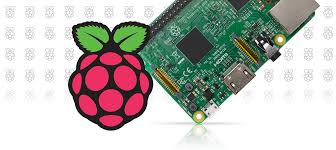Raspberry Pi

The Raspberry Pi is a compact computer, roughly the size of a credit card, designed to be affordable. It can be connected to a computer monitor or TV and used with a standard keyboard and mouse. This versatile device provides an excellent platform for people of all ages to delve into the world of computing and learn programming languages like Scratch and Python.
Despite its small size, the Raspberry Pi is highly capable and can perform all the typical functions expected from a desktop computer. It enables users to browse the internet, play high-definition videos, create spreadsheets, process words, and even play games.
What sets the Raspberry Pi apart is its ability to interact with the external environment. It has been employed in various digital maker projects worldwide, ranging from music machines and parent detectors to weather stations and tweeting birdhouses equipped with infrared cameras. Raspberry Pi's vision is to encourage children across the globe to utilize the Raspberry Pi as a tool for programming education and gaining a deeper understanding of computer functionality.
RASPBERRY PI FOUNDATION
The Raspberry Pi Foundation is a registered educational charity (registration number 1129409) based in the UK. The Foundation’s goal is to advance the education of adults and children, particularly in the field of computers, computer science and related subjects
-
MODEL B+
The higher-spec variant of the Raspberry Pi
-
MODEL B
The original Raspberry Pi
-
MODEL A
A cheaper, low power spin of the original Raspberry Pi
-
CAMERA MODULE
The Raspberry Pi camera module
-
PI NOIR CAMERA
Raspberry Pi camera module with no infrared filter
-
COMPUTE MODULE DEVELOPMENT KIT
A more flexible form factor intended for industrial application
The Raspberry Pi is a series of small, affordable, single-board computers developed by the Raspberry Pi Foundation, a UK-based charity organization. These versatile and credit card-sized computers are designed to promote computer science education, facilitate learning about programming, and support a wide range of DIY and hobbyist projects. Here are some key points about the Raspberry Pi:
Affordable and Compact: The Raspberry Pi is known for its low cost, making it accessible to a wide audience. Despite its small size, it offers impressive computing power.
Variety of Models: The Raspberry Pi comes in several models, each with varying specifications and features. The most recent versions offer increased processing power, memory, and connectivity options.
Versatility: Raspberry Pi can be used for a wide range of applications, including as a desktop computer, media center, home server, web server, gaming console, and more. It can also serve as a platform for IoT (Internet of Things) projects, robotics, and education.
Operating Systems: Raspberry Pi supports various operating systems, including Raspberry Pi OS (formerly Raspbian), Ubuntu, and several other Linux distributions, as well as Windows 10 IoT Core.
Hardware and Connectivity: Raspberry Pi boards typically include HDMI ports, USB ports, GPIO (General Purpose Input/Output) pins, Ethernet ports, Wi-Fi and Bluetooth capabilities, and camera interfaces, making them highly adaptable for different purposes.
Educational Use: The Raspberry Pi Foundation's primary mission is to promote computer science and programming education. It provides educational resources and materials to help learners, students, and teachers get started with programming and electronics.
Community and Support: The Raspberry Pi has a large and active community of users and developers who share projects, tutorials, and troubleshooting solutions. This supportive community is invaluable for anyone exploring Raspberry Pi projects.
Raspberry Pi HATs: HATs (Hardware Attached on Top) are add-on boards that can be attached to a Raspberry Pi to expand its capabilities. These HATs can include sensors, displays, motor controllers, and other functionality.
Commercial and Industrial Use: While initially designed for educational and hobbyist purposes, Raspberry Pi has found applications in various commercial and industrial projects, such as digital signage, automation, and IoT solutions.
Open Source: Raspberry Pi hardware designs are open source, which means that the schematics and designs are available to the public. This openness has encouraged hardware development and innovation.
The Raspberry Pi has gained popularity for its accessibility and versatility, making it a valuable tool for learning about computing and electronics, as well as for creating a wide range of DIY projects and prototypes. Whether you're a student, hobbyist, educator, or professional, the Raspberry Pi provides a cost-effective and powerful platform for exploring and implementing innovative ideas.